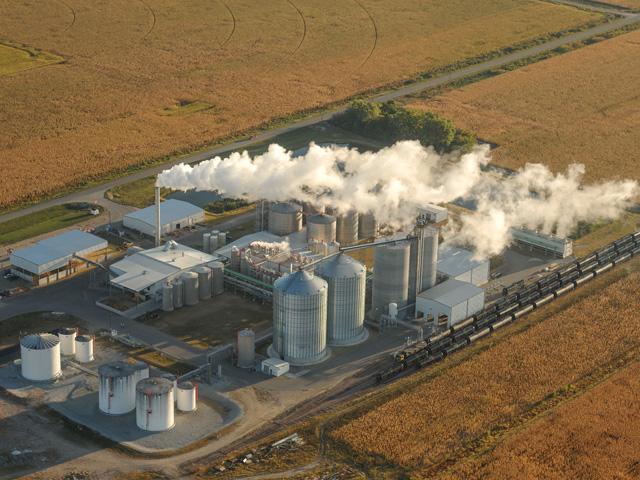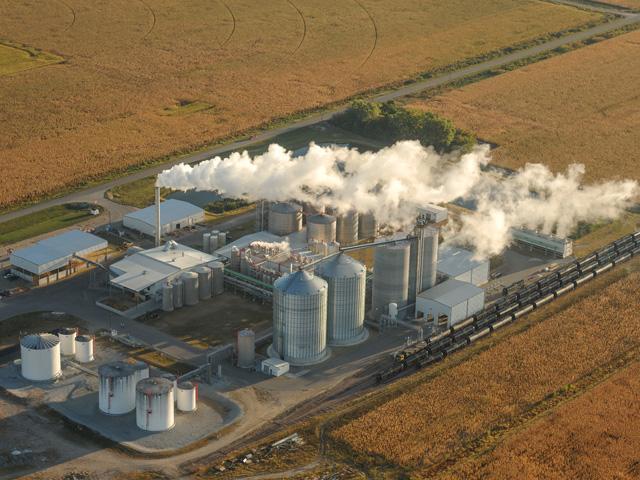Ethanol Blog
Fifth Circuit Overturns EPA Denials on RFS Small-Refinery Exemption Requests
LINCOLN, Neb. (DTN) -- A federal appeals court struck down Biden administration actions on small-refinery exemptions to the Renewable Fuel Standard on Friday, remanding the EPA's rejection of those exemptions back to the EPA for further proceedings.
In a major setback for the ethanol industry, the U.S. Court of Appeals for the Fifth Circuit said the EPA's April 2022 rejection of 31 exemptions previously granted and the later rejection of 69 more exemptions in June 2022 were not allowed by law.
"Six small refineries challenge the EPA's decision to deny their requested exemptions from their obligations under the Renewable Fuel Standard program of the Clean Air Act," the court said.
"The EPA denied petitioners' years-old petitions using a novel CAA interpretation and economic theory that the agency published in December 2021. We conclude that the denial was (1) impermissibly retroactive; (2) contrary to law; and (3) counter to the record evidence. We grant the petitions for review, vacate the challenged adjudications, deny a change of venue, and remand."
Filing the legal challenge were Calumet Shreveport Refining LLC, Placid Refining Company LLC, Ergon Refining Inc. and Wynnewood Refining Company LLC.
The Fifth Circuit called out the agency for changing the procedure it previously followed in taking the actions.
P[L1] D[0x0] M[300x250] OOP[F] ADUNIT[] T[]
"EPA's new interpretation and approach -- which it applied in the denial actions -- displaced the adjudicative methodology the agency had relied on for over a decade," the court said in its ruling.
"In that prior approach, EPA granted and denied petitions based on DOE's findings through its application of the DOE scoring matrix. That scoring matrix -- developed as part of the statutorily mandated 2011 DOE study -- 'was designed to evaluate the full impact of disproportionate economic hardship on small refiners and used to assess the individual degree of potential impairment.'"
The court said that starting with the April 2022 denial of the exemption requests, "EPA has now completely abandoned" the scoring matrix.
"Instead, EPA now adjudicates petitions using an approach it announced in a December 2021 publication," the court said.
"That approach rests on two components. First is a revised interpretation of the statutory term 'disproportionate economic hardship.' Under the agency's new interpretation, a small refinery's disproportionate economic hardship must be caused solely by RFS compliance costs.
"Second is a new economic theory. Called 'RIN passthrough,' EPA now theorizes that (A) the 'cost of RINs is the same for all obligated parties, whether the RINs are acquired by blending renewable fuel or by buying them on the market' and (B) the 'costs of RFS compliance (i.e., RINs) are passed through in the prices of refined products.'"
Alexandra Magill Bromer, Perkins Coie LLP counsel for the Small Refineries Coalition, said in a statement Friday evening that the court's decision was timely.
"Today's ruling by the Fifth Circuit, striking down EPA's denials of small-refinery hardship relief under the Renewable Fuel Standard, is a victory for small refineries and gives us even more reason to be thankful as we head into the Thanksgiving holiday," she said.
"The ruling confirms what we've been saying all along -- that EPA's actions were contrary to law, counter to the record evidence and impermissibly retroactive. Hardship relief does not negatively impact the RFS's goal of increasing the volume of renewable fuels in U.S. transportation fuel supply. Instead, efforts to end hardship relief risk inflicting real and significant financial damage on our nation's small refineries, who play a critical role in the domestic energy supply."
Todd Neeley can be reached at todd.neeley@dtn.com
Follow him on X, formerly known as Twitter, @DTNeeley
(c) Copyright 2023 DTN, LLC. All rights reserved.






Comments
To comment, please Log In or Join our Community .